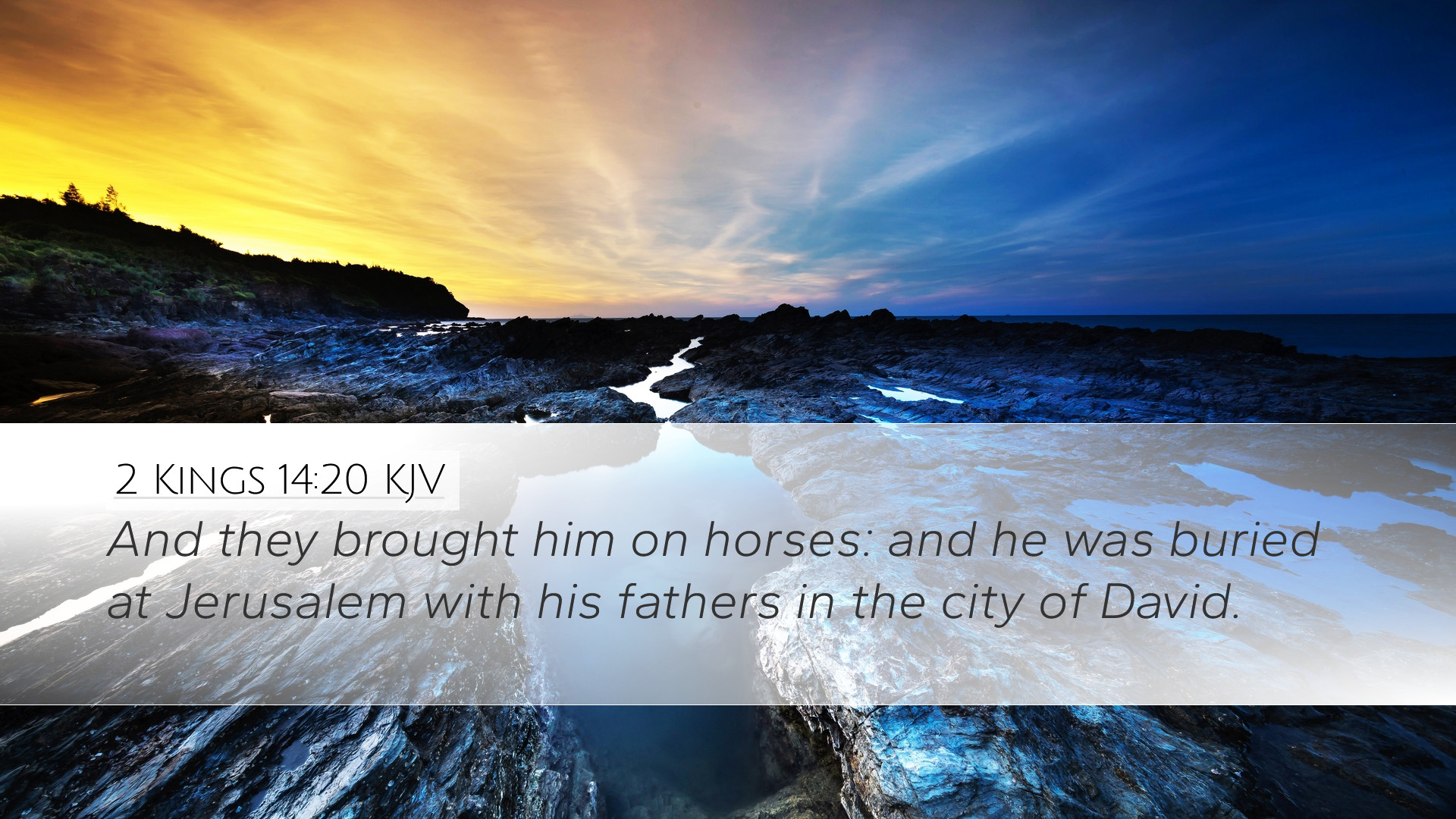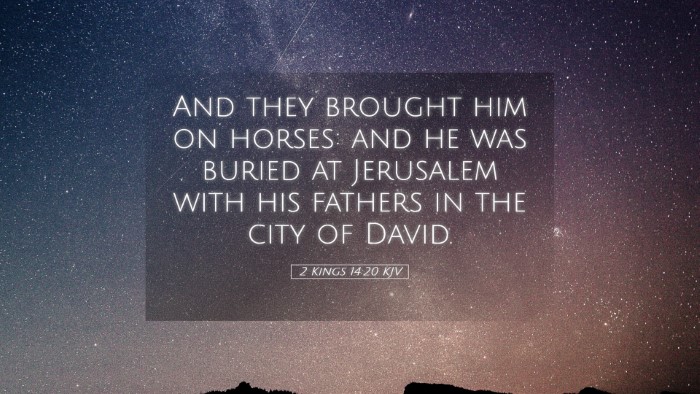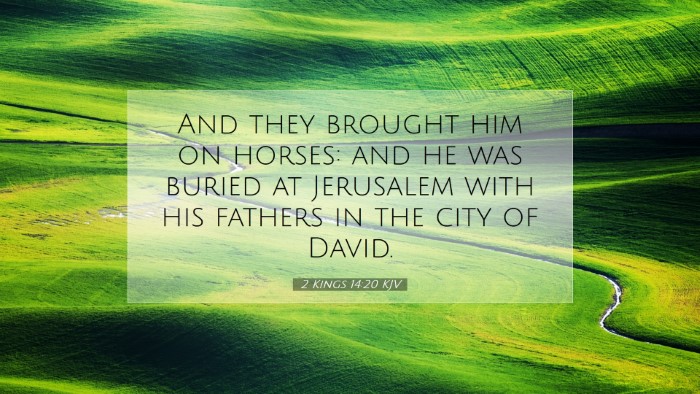Commentary on 2 Kings 14:20
2 Kings 14:20 states: "And they brought him on horses, and he was buried at Jerusalem with his fathers in the city of David." This verse marks a significant moment in the history of Judah, capturing both the end of leadership under King Amaziah and the cultural and spiritual ramifications of his reign.
Contextual Background
To fully appreciate the depth of this verse, it is essential to understand the historical context surrounding Amaziah’s reign. The chapter outlines the political climate of Judah, characterized by struggles against both internal and external adversaries. As outlined in the commentaries, Amaziah, the son of Joash, became king and embarked on both military campaigns and reforms, some of which aligned with God’s directives, and others that led the nation astray.
Analysis of the Verse
This verse functions as a conclusion to Amaziah's life and reign. Let's explore the different facets as provided by notable public domain commentaries:
Matthew Henry’s Commentary
Henry highlights that Amaziah's burial with his fathers signifies a recognition of his lineage and role within the Davidic line, despite his failures. He reflects on how this burial, conducted with respect and honor, contrasts with the fate of other kings who were not granted such dignity due to their misdeeds. The act of being brought on horses symbolizes respect and the acknowledgment of his royal status even in death.
Albert Barnes’ Notes on the Bible
Barnes elaborates on the significance of burial practices in ancient Israel, noting that the honor associated with burial in Jerusalem reflects not only on the king’s status but also on the city’s importance. He emphasizes that Jerusalem was considered the holy city, and being buried there symbolizes a lasting legacy, even if the king's life was marked by both triumph and failure.
Adam Clarke’s Commentary
Clarke approaches this verse with a note on the theological implications. He points out that the manner of Amaziah's burial underscores God's mercy, as the king's life, filled with idolatry and the worship of foreign gods, contrasts with the honor of his burial. Clarke suggests this reflects a deeper narrative about God's patience and the overarching theme of grace that interweaves through the monarchy.
Theological Implications
The act of burial itself raises significant theological questions, particularly regarding the nature of God's covenant with Israel. Though Amaziah failed to uphold the covenant fully, his burial among the kings signifies a continuation of God's promise to David. This theme resonates through the ages, affirming that God's covenantally chosen people maintain their identity through grace, even in the face of unfaithfulness.
Lessons for Today’s Believers
- The importance of legacy: Like Amaziah, leaders today are remembered for both their actions and their commitment to God. Consideration should be given to what legacy is being left.
- Understanding grace: Despite our failures, God’s grace remains. This verse reminds us of the complexities of leadership and God's transcendent mercy.
- Significance of worship: Amaziah’s idolatry serves as a warning; worship must be directed to God alone, for it affects both personal and communal health.
Conclusion
In summary, 2 Kings 14:20 is not just a record of burial; it is a reflection of complex themes of honor, legacy, grace, and the enduring nature of God's covenant with His people. The insights gleaned from Matthew Henry, Albert Barnes, and Adam Clarke offer a rich tapestry of meanings that are essential for pastors, students, theologians, and Bible scholars alike. Reflecting on such passages encourages deeper understanding of Scripture and the implications of faithfulness to God in leadership.


